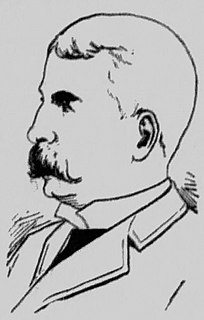A Quote by Washington Irving
He who wins a thousand common hearts is entitled to some renown; but he who keeps undisputed sway over the heart of a coquette is indeed a hero.
Related Quotes
Ten thousand officers and men named Smith died in the First World War. One thousand four hundred Campbells died, six thousand Joneses, and one thousand Murphys. Smith, Campbell, Jones and Murphy: the names of the United Kingdom, whose presence in regiments from all four countries speaks of the ebb and flow of peoples within these islands, of a common sacrifice, and a shared agony that burned in so many million hearts down the decades.
That Americans are entitled to freedom is incontestable on every rational principle. All men have one common original: they participate in one common nature, and consequently have one common right. No reason can be assigned why one man should exercise any power or preeminence over his fellow-creatures more than another; unless they have voluntarily vested him with it.
A common and natural result of an undue respect for law is, that you may see a file of soldiers, colonel, captain, corporal, privates, powder-monkeys, and all, marching in admirable order over hill and dale to the wars, against their wills, ay, against their common sense and consciences, which makes it very steep marching indeed, and produces a palpitation of the heart.
Why do we have to listen to our hearts?” the boy asked, when they had made camp that day. “Because, wherever your heart is, that is where you’ll find your treasure.” “But my heart is agitated,” the boy said. “It has its dreams, it gets emotional, and it’s become passionate over a woman of the dessert. It asks things of me, and it keeps me from sleeping many nights when I’m thinking about her.” “Well, that’s good. Your heart is alive. Keep listening to what it has to say.
It is permissible even for a dying hero to think before he dies how men will speak of him hereafter. His fame lasts perhaps two thousand years. And what are two thousand years?... What, indeed, if you look from a mountain top down the long wastes of the ages? The very stone one kicks with one's boot will outlast Shakespeare.
[T]he guilty as well as the innocent are entitled to due process of law. They are entitled to a fair trial. They are entitled to counsel. They are entitled to fair treatment from the police. The law enforcement officer has the same duty as the citizen-indeed, he has a higher duty-to abide by the letter and spirit of our Constitution and laws. You yourselves must be careful to obey the letter of the law. You yourselves must be intellectually honest in the enforcement of the law.




































